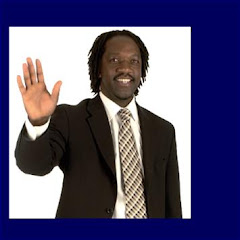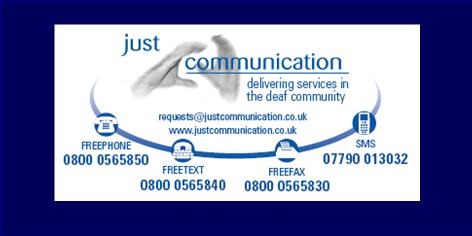Hard-of-hearing viewers have been left "utterly perplexed" by errors in the live captions – which have also renamed the Ireland rugby team "Island". Deaf people have expressed their shock at being told a town was expecting a visit from the "Arch b**** of Canterbury" during one local BBC news broadcast. In another embarrassing faux pas, a reporter visiting a farm spoke of how the pigs "love to nibble anything that comes into the shed, like our wellies." Unfortunately the subtitles alongside the report changed the last word to to a rather childish homophone. After one viewer captured it on screen the error became an internet sensation.
During the Queen Mother's funeral, the solemn words "We'll now have a moment's silence for the Queen Mother" became "We'll now have a moment's violence for the Queen Mother" in one BBC broadcast.
The blunders have become so regular that a dedicated website has been set up by bemused viewers: http://subtitlespage888.blogspot.com/
One found in another broadcast a BBC announcer said "government making holes for surgeons" instead of "making helpful decisions." While the Labour leader was referred to as "Ed Miller Band" in a news broadcast earlier this year. And in one Daily Politics show, one politician announced to the presenter, Andrew Neil, that he did not believe in “soliciting” himself, when he had actually said “shortlisting”.
Pre-recorded subtitles are done before transmission and appear in time with the programme. Live subtitles, however, are made by a stenographer typing words phonetically as they listen to a show, or with speech recognition, where someone talks into a microphone while listening to the broadcast, and a computer recognises their words. The latter can lead to the use of words that sound similar to the intended one, but give a very different meaning.
Broadcast regulator Ofcom has compiled research which has found that many people who could benefit from subtitles just make do for example by turning up the volume.
They also found that of those who use subtitles, nearly 60 per cent report problems with subtitles on catch-up television services.
Last week, BBC subtitles left deaf rugby fans baffled, thinking that the Welsh side were playing "Island" instead of "Ireland" in the World Cup. The frequent mistakes in the corporation’s live subtitling have now come under fire from deaf groups.
Emma Harrison, Action on Hearing Loss’s Director of Public Engagement said she receives regular complaints about errors in subtitling: "Access to television is really important to people with a hearing loss. We urge all broadcasters to monitor the quality of their subtitling to ensure high standards, and invest in technology to reduce mistakes so people with hearing loss can access television in the same way as hearing people," she said.
"We would also like Ofcom to play a greater role in monitoring subtitling complaints.
"As part of the Government review of the Communications Act, we are calling for new laws to provide full access to television entertainment, and want subtitling to be available on all programmes, regardless of whether it is traditional or catch up TV."
The BBC said: "We recognise that subtitling is a hugely important service, and we endeavour to ensure it is as accurate as possible. There are occasions, particularly during live broadcasts, when mistakes will happen but we do all we can to keep this to a minimum and are constantly striving to improve accuracy."
One found in another broadcast a BBC announcer said "government making holes for surgeons" instead of "making helpful decisions." While the Labour leader was referred to as "Ed Miller Band" in a news broadcast earlier this year. And in one Daily Politics show, one politician announced to the presenter, Andrew Neil, that he did not believe in “soliciting” himself, when he had actually said “shortlisting”.
Pre-recorded subtitles are done before transmission and appear in time with the programme. Live subtitles, however, are made by a stenographer typing words phonetically as they listen to a show, or with speech recognition, where someone talks into a microphone while listening to the broadcast, and a computer recognises their words. The latter can lead to the use of words that sound similar to the intended one, but give a very different meaning.
Broadcast regulator Ofcom has compiled research which has found that many people who could benefit from subtitles just make do for example by turning up the volume.
They also found that of those who use subtitles, nearly 60 per cent report problems with subtitles on catch-up television services.
Last week, BBC subtitles left deaf rugby fans baffled, thinking that the Welsh side were playing "Island" instead of "Ireland" in the World Cup. The frequent mistakes in the corporation’s live subtitling have now come under fire from deaf groups.
Emma Harrison, Action on Hearing Loss’s Director of Public Engagement said she receives regular complaints about errors in subtitling: "Access to television is really important to people with a hearing loss. We urge all broadcasters to monitor the quality of their subtitling to ensure high standards, and invest in technology to reduce mistakes so people with hearing loss can access television in the same way as hearing people," she said.
"We would also like Ofcom to play a greater role in monitoring subtitling complaints.
"As part of the Government review of the Communications Act, we are calling for new laws to provide full access to television entertainment, and want subtitling to be available on all programmes, regardless of whether it is traditional or catch up TV."
The BBC said: "We recognise that subtitling is a hugely important service, and we endeavour to ensure it is as accurate as possible. There are occasions, particularly during live broadcasts, when mistakes will happen but we do all we can to keep this to a minimum and are constantly striving to improve accuracy."






No comments:
Post a Comment